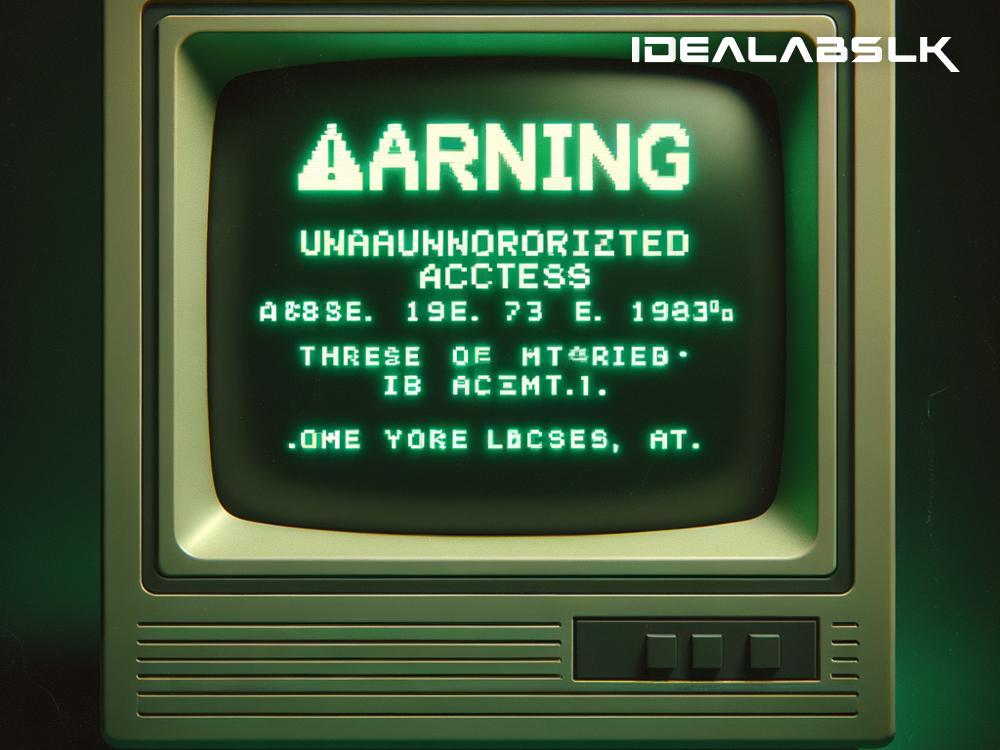The Beginnings of Spying Software: A Journey Through Digital Espionage
In the vast world of the internet, full of endless possibilities and wonders, there lurks a darker side that many of us have come to know all too well: spyware. This sneaky software has been causing trouble for internet users for decades, spying on unsuspecting victims and gathering information without permission. But where did spyware come from? How did this digital espionage begin? Let's dive into the origins of spyware and uncover its roots in simple English.
The Early Days of the Internet
To understand the emergence of spyware, we first need to step back in time to the early days of the internet. Picture it: the mid-1990s, the internet is a new frontier, exciting and largely unregulated. As users marveled at the ability to connect with people across the globe, few realized the potential for malicious software to exploit this newfound connectivity.
The Birth of Spyware
Spyware, as we know it today, took its first breath in the late 1990s. The term "spyware" was reportedly first used in 1995 in a Usenet post that joked about Microsoft's business model. However, it wasn't until a few years later that it would begin to signify the invasive software we're familiar with. One of the earliest known examples of spyware was a program called "Elf Bowling," a seemingly innocent computer game that secretly transmitted user details back to the game's creators. But it was in the early 2000s, with the creation of "Gator" and "Aureate/Radiate," that spyware truly began to flourish. These programs piggybacked on free software downloads, hiding in the digital shadows and monitoring user behavior without clear consent.
The Motivation Behind Spyware
You might wonder why someone would go to the trouble of creating spyware. The answer, unsurprisingly, often boils down to money. Initially, spyware was primarily used to track users' habits online, collecting data that could be valuable for advertising purposes. By understanding what users were interested in, companies could target ads more effectively, boosting their sales. However, as the financial incentives grew, so did the scope of spyware. Some programs started gathering more sensitive information, like login details and credit card numbers, leading to privacy nightmares.
Governmental Involvement
It wasn't just advertisers that saw potential in spyware – governments and law enforcement agencies took an interest, too. By secretly installing spyware on suspects' devices, they could gather evidence without needing to obtain it through traditional, more intrusive methods. This use of spyware has sparked fierce debates about privacy and security, with many arguing that it infringes on individual freedoms.
The Fight Against Spyware
As the threat of spyware became more evident, internet users started to fight back. The mid-2000s saw the rise of anti-spyware tools designed to detect and remove these unwanted guests. Legislation also began to catch up, with laws introduced to curb the worst excesses of spyware creators. Despite these efforts, spyware has continued to evolve, finding new ways to sneak past defenses and into our digital lives.
The Legacy of Spyware
Today, the legacy of spyware lives on in various forms of malware and tracking technologies. While outright spyware is less prevalent, due in part to improved security measures and awareness, its descendants continue to pose significant threats. Now, more sophisticated techniques like ransomware and phishing attacks have taken the forefront, demonstrating the ever-evolving nature of cyber threats.
The Importance of Vigilance
The origins of spyware teach us an important lesson about the need for vigilance in the digital age. As technology advances, so do the methods used by those looking to exploit it for personal gain. Protecting ourselves requires a combination of updated technology, legal protections, and personal awareness.
In conclusion, the story of spyware is a cautionary tale of innovation gone awry, a reminder of the dark corners of the digital world where privacy is under constant threat. As we continue to navigate the internet, let's keep in mind the lessons learned from the origins of spyware and strive for a secure and respectful online environment for all.

